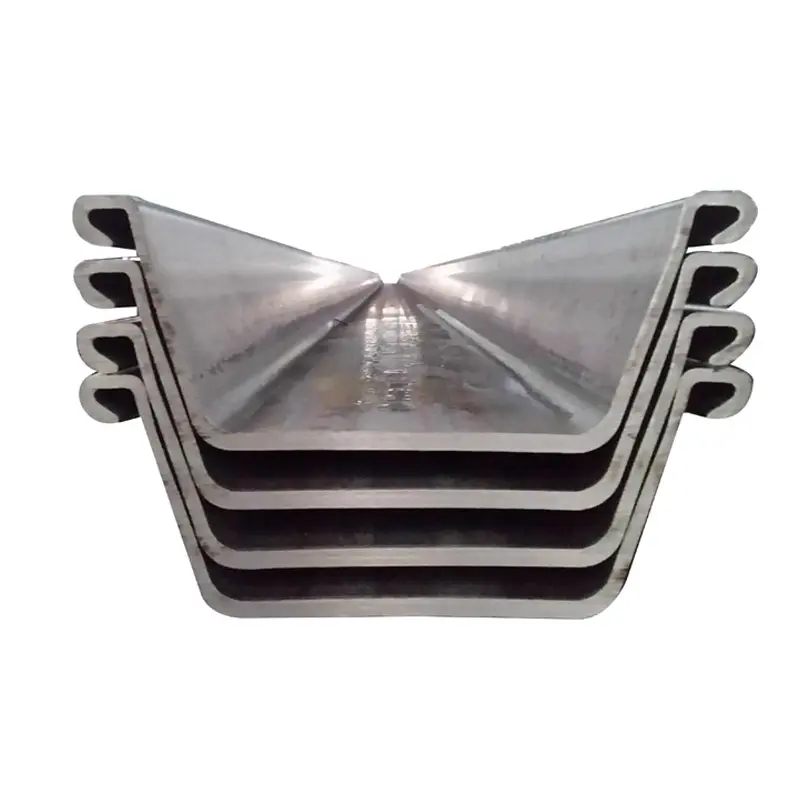U type steel sheet pile, characterized by its U shaped cross section, is one of the most widely used sheet pile profiles due to its balanced combination of structural rigidity, interlock efficiency, and ease of installation. The U shaped design provides a large moment of inertia relative to its weight, making it suitable for moderate to high lateral load applications. The concave web forms a natural interlock with adjacent piles, creating a continuous wall that resists water and soil infiltration. Material choices range from carbon steel grades like Q235B for general use to high strength alloys like Q390 for heavy duty projects, often galvanized or coated for corrosion resistance. Manufacturing involves cold rolling or hot rolling to form the U profile, with precise control over flange width, web depth, and interlock geometry to ensure consistent fit up. U type sheet piles are commonly used in retaining walls, basement excavations, and waterfront structures, where their symmetrical design allows for easy handling and reversible installation. The interlock system, typically a straight or tapered tongue and groove design, can be enhanced with sealing strips for watertight applications in high groundwater zones. Engineering design considers the section modulus of the U profile to calculate allowable bending stress, with empirical formulas or numerical simulations used to determine embedment depth and bracing requirements. Installation methods include vibratory driving for soft soils and impact driving for denser deposits, with attention to maintaining vertical alignment to prevent interlock misalignment. International standards such as JIS A5528 (Japanese Industrial Standard) specify dimensional tolerances and mechanical properties for U type sheet piles, ensuring compatibility across different manufacturers. Their versatility is further enhanced by the ability to cut and weld piles on site for custom lengths, though such modifications require strict quality control to avoid weakening the structure. The U type profile's proven performance and global availability make it a default choice for most sheet pile applications, balancing cost effectiveness with reliable structural performance in a wide range of soil and environmental conditions.


